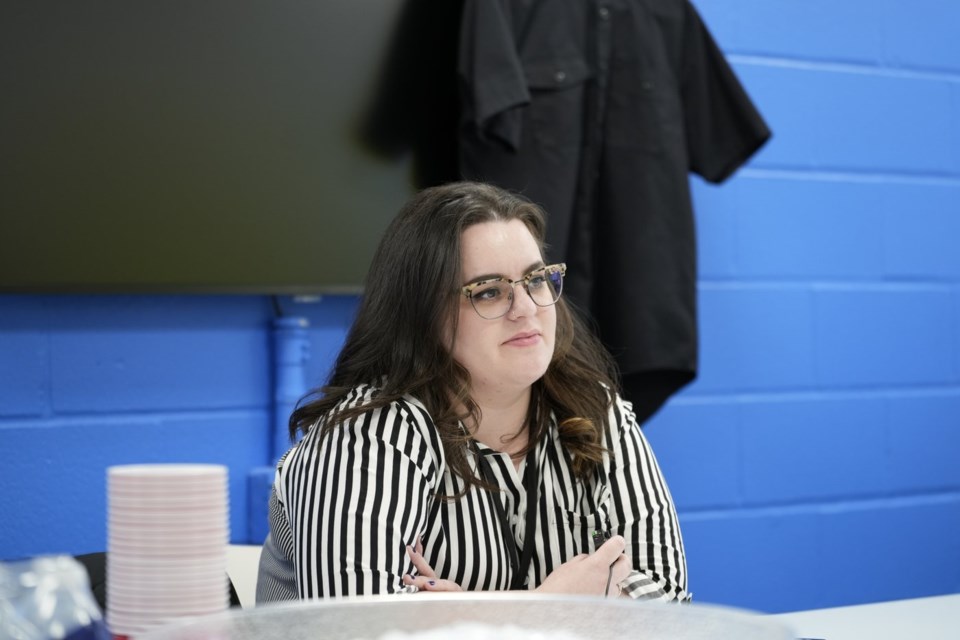Hayley Reid-Ginis knew her life was in for a shakeup when she decided to go back to college last September.
She took on a student loan and had to cut some discretionary spending from her tightened budget — and even though she decided to continue working while going to school, it ultimately meant fewer nights out with friends.
"I had to really be mindful with money and it was the first time that I had loans," said the 28-year-old.
"What I find challenging is, at my age, a lot of my friends are already established in their careers, so they're not living on a student budget," Reid-Ginis said.
"I find that I often have to explain or, like, remind them of what it's like to be living on so little money."
As many Canadians continue to feel the pressure on their budget from the high cost of living, they're having to make tough choices in how they spend their money. This could include having to forgo going out with friends, which could lead to tensions between friends or lost friendships.
"I feel like people still don't talk about money," said Jeri Bittorf, a financial wellness co-ordinator with Resolve Counselling Services Canada.
She often hears stories from clients who feel ashamed that they can't keep up with their friends' spending and outings, Bittorf said.
"You might have a friend circle where you're so used to going out to eat together or … going to concerts together," she said. "A lot of whatever it is that you're doing involves money."
Bittorf said people are often afraid, embarrassed or feel judged when telling their friends they can't afford to go out.
"I guarantee you, if you're experiencing this, most likely a number of your friends are also experiencing this," she said.
"It just takes that one person to start that conversation."
Bittorf recalled her experience with her girlfriends when planning a weekend getaway. A mother of three, Bittorf knew there were upcoming expenses related to her kids that she had to factor into her budget. She gently brought up priorities and boundaries to the group, which eventually led to settling for a vacation everyone could enjoy.
Sometimes, Bittorf said, it's a matter of how the conversation goes with friends.
"It's really about allowing yourself to be vulnerable to people you're closest with and being honest," Bittorf said.
She explained it starts with laying out facts you could be noticing — "I noticed that we're going out to eat a lot," or "We're going out to a lot of concerts right now."
Then, expressing how it makes you feel, Bittorf said: "I'm worried that if I continue to do this, I might end up going further into debt … because my financial situation is different from yours."
Figure out how much you are willing to spend on going out with friends and communicate it to them, she added.
Bittorf said transparency about financial situations can open doors to brainstorming ideas for spending time together without always having to spend money.
"If you just keep saying, 'No, I can't afford it,' the other person might think that you don't want to find another solution," she said.
Reid-Ginis said she knows her budget and has suggested alternative options when hanging out with friends.
She says some conversations are as simple as: "I can't afford that restaurant. Can we go somewhere cheaper?" or "Can we bring food and go on a picnic somewhere?"
While she has mostly kept up with friends, Reid-Ginis said she has been seeing some of her friends less frequently.
"I find that they just don't ask me out and I'm not in a place that I can ask them out either," she said.
"As much as I feel like we're still friends and they're still people I can talk to, that activity that we would do together has diminished."
Elke Rubach of Rubach Wealth said discipline and being aware of living within your means could help in setting boundaries when dealing with money and relationships.
She added it's important to understand the percentage of income going toward necessities and then set an amount aside for fun activities.
"I'll never tell people to stop going out because you need to save," she said.
"There's a balance. ... You need to be human too."
This report by The Canadian Press was first published Oct. 8, 2024.
Ritika Dubey, The Canadian Press




